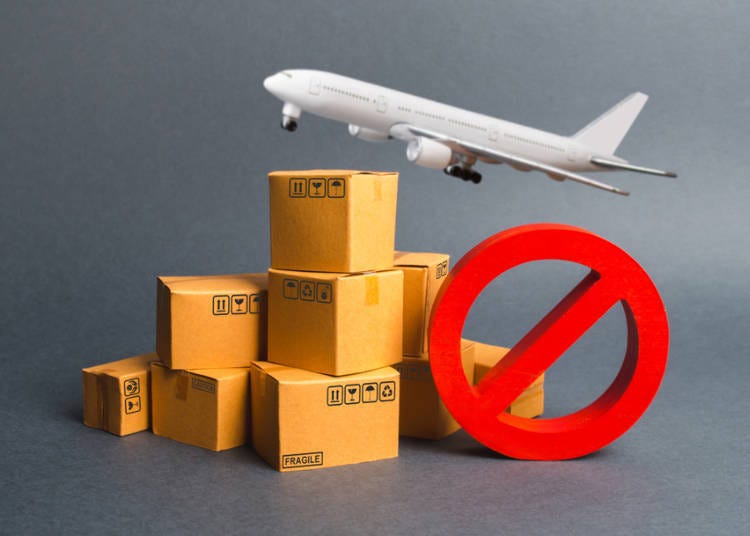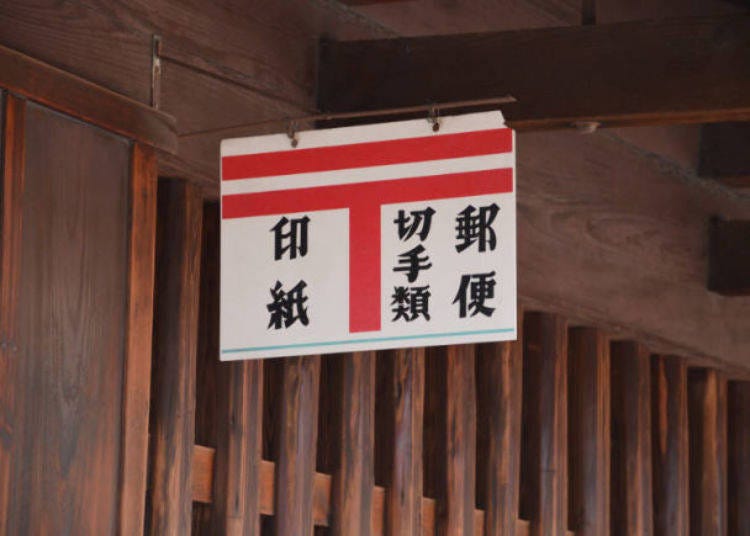
Shopping in Japan is a major highlight for many travelers—whether it’s clothes, cosmetics, snacks, or quirky home goods, it’s easy to end up with more than your suitcase can handle. If you’re thinking about shipping items back home, it’s important to know that Japan Post and courier services like Yamato have strict regulations on what can be sent internationally. Plus, different countries have their own rules on what’s allowed to be imported. This guide outlines what can’t be shipped, along with a simple explanation of Japan’s updated EAD customs form system, so you can avoid delays or returns.
Prohibited Items When Shipping from Japan: Aviation-Restricted Goods

According to the International Air Transport Association (IATA), the following items are considered “dangerous goods” and cannot be shipped internationally via Japan Post or courier services like Yamato, whether by air or sea.
・Explosives: Fireworks, firecrackers, ammunition
・Compressed gases: Scuba tanks, gas canisters for portable stoves, aerosol sprays, fire extinguishers
・Flammable liquids: Perfume, nail polish, nail polish remover, hair tonic, alcoholic beverages, lighter fuel
・Flammable solids: Matches, charcoal
・Oxidizing substances: Portable oxygen tanks, bleach
・Toxic substances: Dyes, insecticides, pesticides, disinfectants, herbicides
・Radioactive materials: Regulated medicines and medical devices under Japanese law
・Corrosive substances: Liquid batteries, mercury batteries, mercury
・Other restricted items: Power banks, lithium batteries, dry ice
The following are also prohibited, even if not classified as aviation hazards:
・Items deemed offensive or immoral
・Narcotics and psychotropic drugs
・Live animals
Items Japan Post Cannot Ship to Select Countries

In addition to aviation-restricted items, Japan Post also enforces shipping restrictions based on import regulations.
Note that in countries where beef is prohibited, items such as instant cup noodles, curry, and instant consommé that contain beef or beef extracts are also not allowed to be sent.
Australia
Prohibited Items
・Cultural heritage items (e.g., antiquities, fossils, historical documents, flora/fauna specimens)
・Cash, bank notes, traveler’s checks, precious metals/stones (except permitted jewelry)
・Drugs (<@see the ABF website for details|a=www.abf.gov.au/importing-exporting-and-manufacturing/prohibited-goods/list-of-items@>)
・Fruit cartons (new or used)
・Items bearing the name “Anzac”
・Goods made in prisons/by convict labor
・Laser pointers over 1 MW output
・Most food, plant, and animal products (including straw as packing material)
・Replica firearms or firearm-like objects
・Seditious literature
・Signal jammers
・Tobacco products
・Untreated wood
Restricted Items
・Airsoft guns: Require import approval from police
・Drugs/medicines: Require permit from Australian Office of Drug Control
・Fish and marine life: Require AFMA import permit
・Jewelry: Only allowed via insured Priority Mail International; prohibited if made with ivory or endangered species without a CITES permit
・Weapons (e.g., katana, throwing knives): Require B709B or B709X Police Certification
・Meat, milk, and dairy: Require import permission from Australian quarantine authorities
For more guidelines on hazardous, prohibited, and restricted mailings, see the Australia Post website
Philippines
Prohibited Items
・Cash, coins, securities, traveler’s checks, precious metals/stones, or other valuables
・Firearms, weapon parts (including replicas), and ammunition
・Gambling devices and lottery materials (tickets, ads, circulars)
・Liquids, easily melted or fragile items (e.g., glass)
・Narcotics and similar substances
・Perishable infectious or noninfectious biological substances
Restricted Items
・Coffee (personal use only): Max 2 bottles of powdered coffee (500g each); max 2kg of beans or ground coffee
・Plants and similar items: Require import clearance and phytosanitary certificates from the Philippines Bureau of Plant Industry
* Items without proper documentation may be destroyed
For more guidelines on hazardous, prohibited, and restricted mailings, see the Bureau of Customs website.
Singapore
Prohibited Items
・Advertisements for charms, amulets, and talismans
・Firearms, arms, and related parts
・Bullion over 50 Singapore dollars in value
・Butane gas lighters and refills
・Coins (except for ornament use), banknotes, currency, traveler’s checks, bearer securities, precious stones, jewelry, and other valuables (*Unmounted precious stones may be sent via First-Class Package International Service with Registered Mail if authorized by the Postmaster General of Singapore)
・Lotteries and related advertisements
Restricted Items
・Meat and animal by-products: Require an import permit from the Director of Primary Production (must be addressed care of the Director)
For more guidelines on hazardous, prohibited, and restricted mailings, see the Singapore Customs website.
UK
Prohibited Items
・Aerosols
・Ammunition (except lead pellets)
・Live animals, including reptiles and fish
・Weapons, parts, imitations, paintball/toy guns, tasers, air guns
・Trademark/copyright-infringing goods
・Asbestos products
・Bladed items (e.g., knives, axes, machetes, utility knives, scissors, swords, switchblades, open razors)
・Christmas crackers
・Coins, precious metals/stones, jewels, and other valuables
・Counterfeit money, stamps
・Stamp forgery equipment
・Goods made in foreign prisons (exceptions apply)
・Obscene/indecent content (e.g., media, books, films)
・Lead-acid and sealed lead-acid batteries
・Illegal lottery materials
・Flammable/toxic medicines
・Stun guns and electric shock devices
・Switchblade and gravity knives
Restricted Items
・Plants and plant parts: Require an import permit from the UK Agricultural Department
For more guidelines on hazardous, prohibited, and restricted mailings, see the Post Office UK website.
USA
Prohibited Items
・Tobacco (including roll-your-own and smokeless tobacco products)
・Anabolic steroids and other substances regulated under U.S. CFR Title 21 Part 1308
・Olive oil
・Packing materials made from straw, grass, or similar substances
・Lottery-related items and fraudulent promotional materials
・Ammunition and matches (including metallic primers or cartridges for firearms)
・Beef and beef products
・Contraceptives or abortion-related items and literature
・Mail with insulting or threatening external markings
・Alcoholic beverages
・Electronic nicotine delivery systems (ENDS) and vape liquids (e.g., e-cigarettes, vapes, pens, shisha)
・Narcotics (e.g., opium, morphine, cocaine)
Restricted Items
・Gold (coins, bullion, products): Allowed only if insured and valued below permitted limits
・Firearms (e.g., pistols under 45 cm barrel length): Permitted with approval
・Switchblade knives: Allowed only with official permission
・Bird feathers and skins: Prohibited unless meeting specific approved conditions
For more guidelines on hazardous, prohibited, and restricted mailings, see the USPS website.
Shipping from Japan? Don’t Forget the EAD Customs Form
To enhance international shipping security, Japan Post introduced a mandatory system on January 1, 2021, requiring Electronic Advance Data (EAD) for all international parcels.
In short, whenever you send packages from Japan using EMS, international parcels, small packets, or international ePacket/ePacket Light, you must first fill out a customs form online. Here are the four steps for sending packages abroad from Japan:
Step 1: Pack, seal, and weigh your parcel
Step 2: Visit Japan Post’s “International Mail My Page Service” to complete the EAD customs form
Step 3: After filling out the form, print it and either attach it to the package yourself or bring it to the post office counter along with your parcel.
Step 4: Send the package from the post office.
Japan Post also offers EAD customs form guides in English. It may seem a bit complicated at first, but if you follow the instructions, it’s usually straightforward. For more details, check out the article below:
Bought too much in Japan? Read this before mailing it home
Japan has strict rules for international parcels. While personal items like clothes and daily goods are generally fine, many popular souvenirs—such as medicine, supplements, cosmetics, and electronics—may fall under prohibited or restricted items. If you really need to send things back to Taiwan, be sure to double-check what's allowed to avoid trouble!
Sources:
・Items You Cannot Send by International Mail (Japan Post)
・International Mail Conditions Table (Japan Post)
*Prices and options mentioned are subject to change.
*Unless stated otherwise, all prices include tax.
Popular Tours & Activitiess
Recommended places for you
-

Kanzenkoshitsuyakinikutabehodai Gyugyu Paradise Sannomiya
Yakiniku
Kobe, Sannomiya, Kitano
-

Jukuseiniku-to Namamottsuarera Nikubaru Italian Nikutaria Sannomiya
Izakaya
Kobe, Sannomiya, Kitano
-
Appealing

Rukku and Uohei
Izakaya
Sapporo / Chitose
-
Goods

Yoshida Gennojo-Roho Kyoto Buddhist Altars
Gift Shops
Nijo Castle, Kyoto Imperial Palace
-

ISHIDAYA Hanare
Yakiniku
Kobe, Sannomiya, Kitano
-

Kambei Sannomiyahonten
Yakiniku
Kobe, Sannomiya, Kitano
-
Ad

The Whisper of a 1,300-Year-Old History: Meet the Other Face of Nara at Night
by: Shingo Teraoka
-
Ad

5 Recommended Wagyu Yakiniku Restaurants in Tokyo: Signature Dishes, Premium Beef, and Secret Sauces
-
Ad

Japan’s Land of Yokai Monsters and Spooky Stories! A Deep Journey to Mysterious San’in (Tottori & Shimane) for Seasoned Travelers
-

A New Tokyo Landmark Is Coming in 2026, and It's Built for Modern Travelers
by: Guest Contributor
-
Ad

What Makes Japanese Yakiniku So Darn Good? Guide to Cuts, Heat, and Wagyu Know-How
-

PokéPark KANTO Is Finally Open! Tokyo's New Pokémon World Starts Before You Even Arrive (2026)
by: Guest Contributor
-

Fine Japanese dining in Tokyo
-

Magical Japanese Villages in Northern Tohoku
by: Steve Csorgo
-

18 Travel Secrets of Aomori Japan: Guide for Sightseeing, Shopping, and More
by: Guest Contributor
-

Kasuga Taisha: A Kyoto Day Trip to See the Unforgettable Sight of 3,000 Lanterns
-

Sumikawa Snow Park: Skiing in Northern Japan's Breathtaking Backcountry
-

Super Mario Event at 7-Eleven Japan is Happening Now! What Did the LIVE JAPAN Team Buy?
- #best sushi japan
- #what to do in odaiba
- #what to bring to japan
- #new years in tokyo
- #best ramen japan
- #what to buy in ameyoko
- #japanese nail trends
- #things to do japan
- #onsen tattoo friendly tokyo
- #daiso
- #best coffee japan
- #best japanese soft drinks
- #best yakiniku japan
- #japanese fashion culture
- #japanese convenience store snacks














